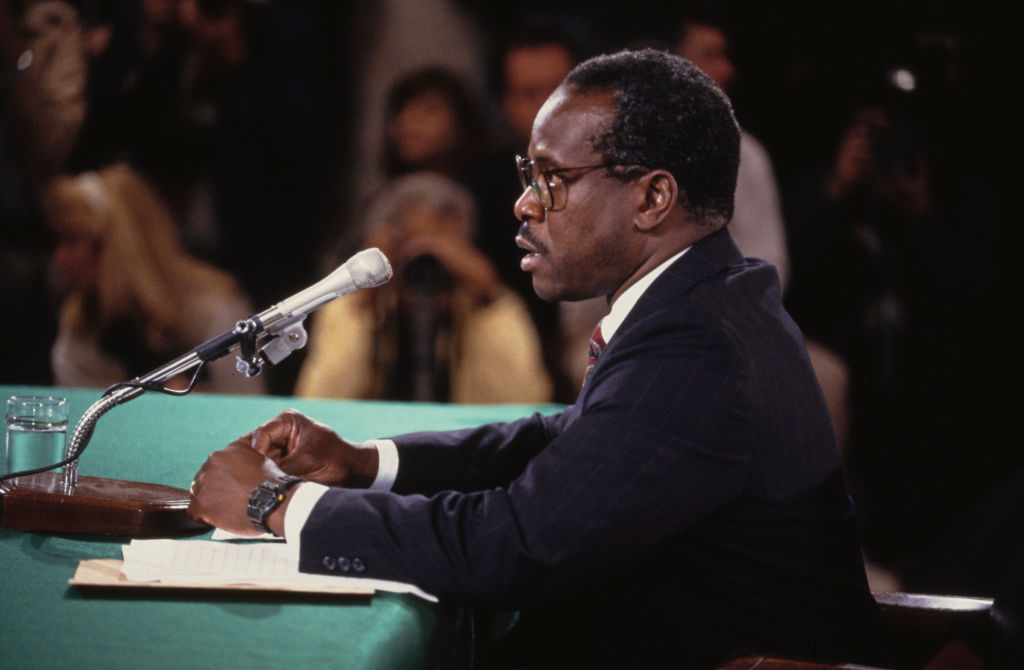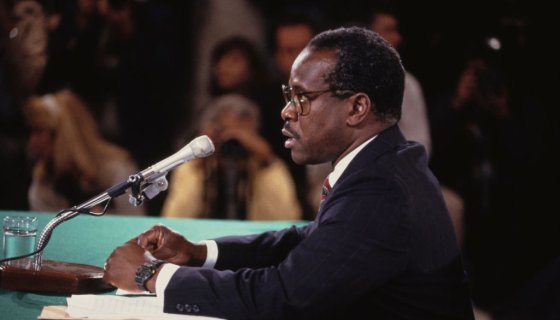
Source: Consolidated News Pictures / Getty
A dissenting opinion from Supreme Court Justice Clarence Thomas took on a strange tone as he claimed that COVID-19 vaccines were made with the cells of recently aborted children.
On Thursday (June 30th), the Supreme Court ruled 6-3 to leave a vaccination mandate in place for healthcare workers in the state of New York, denying the challenge brought to the U.S. District Court for the Northern District of New York by 16 workers who claimed that the mandate lacked a valid religious exemption. The workers who filed the challenge were either fired, lost their hospital privileges, resigned, or elected to receive the vaccine. In the dissenting opinion that was written by Justice Thomas, he claimed that the workers “object on religious grounds to all available COVID-19 vaccines because they were developed using cell lines derived from aborted children,” before hinting that he “would not miss the chance to answer this recurring question in the normal course on our merits docket.” Justices Samuel Alito and Neil Gorsuch joined him in dissenting.
The conservative judge’s claim is a highly misleading one that has become a nagging talking point for vaccine deniers – including those from the QAnon camp – when the COVID-19 vaccine first became available. While it is factual that frozen fetal cell lines from elective abortions done decades ago were instrumental in testing the effectiveness of the vaccines, the vaccines were not made with recently aborted fetuses or their cells. Furthermore, religious groups and organizations have thrown cold water on the idea of legitimate religious exemptions to the COVID vaccines, with the Vatican doing so in December 2020. At that time, their Congregation for the Doctrine of The Faith wrote that “it is morally acceptable to receive Covid-19 vaccines that have used cell lines from aborted fetuses in their research and production process.”
The dissenting opinion is another eyebrow-raising statement from Thomas. He has previously expressed a desire to overturn the decisions that made same-sex marriage and the right to contraception protected by the Constitution after he joined in the vote that overturned the decision made in Roe V. Wade which protected the right to abortion last week. But he explicitly made no comment about the Loving v. Virginia case, which protected interracial marriage.

